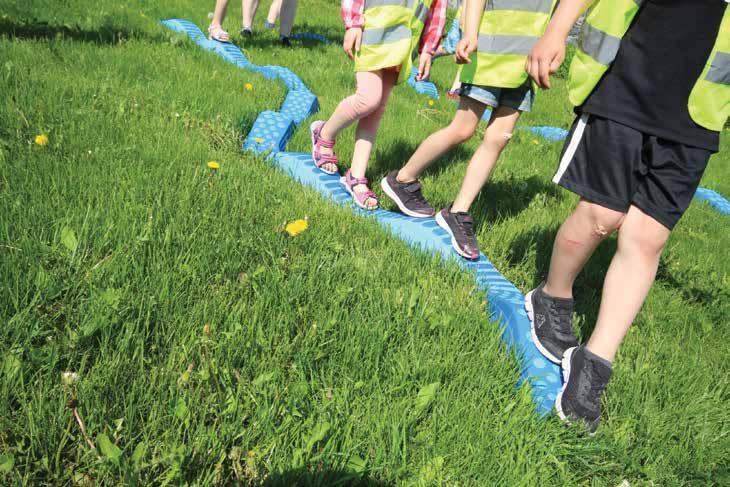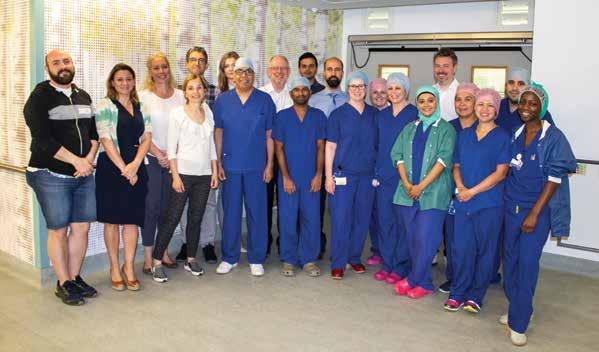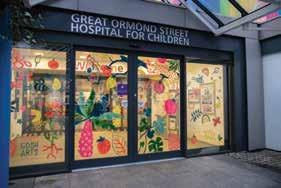
5 minute read
Physical activity helps curb low-grade inflammation in children
Paediatrics
Physical activity helps curb low-grade inflammation in children
According to a recent Finnish study, accumulating more brisk and vigorous physical activity can curb adiposity-induced lowgrade inflammation. The study also reported that diet quality had no independent association with low-grade inflammation. The findings, based on the ongoing Physical Activity and Nutrition in Children (PANIC) Study conducted at the University of Eastern Finland, were published in the European Journal of Sport Science.
The study was carried out in collaboration with researchers from the University of Jyväskylä, the University of Eastern Finland, the Norwegian School of Sport Sciences, and the University of Cambridge.
Low-grade inflammation is linked to many chronic diseases
Long-lasting low-grade inflammation increases the risk for type 2 diabetes and cardiovascular diseases. Being overweight and obese contribute to low-grade inflammation, but little is still known about the role of lifestyle in curbing low-grade inflammation beginning in childhood.
“Our study showed that children who were physically more active and less sedentary had a healthier inflammatory profile than children who were physically less active,” explained Dr. Eero Haapala from the Faculty of Sport and Health Sciences at the University of Jyväskylä. “However, our results suggest that the positive effects of high levels of vigorous physical activity and low levels of sedentary time on lowgrade inflammation are partly explained by their positive effects on body composition.”
In children with the lowest levels of physical activity, poorest diet quality and the highest body fat percentage, researchers found an unhealthy inflammatory profile.
“The key message of our results is that increasing physical activity and reducing sedentary time are key in preventing lowgrade inflammation starting in childhood,” said Haapala. “They would be particularly important for overweight children.”
The study looked at the associations between physical activity, sedentary time, diet quality, body fat content, and lowgrade inflammation in 390 children aged 6 to 8 years. Physical activity and sedentary time were measured by a combined heart
Photo: University of Jyväskylä.
rate and movement sensor and body composition with a DXA device. Low-grade inflammation was assessed using biomarkers measured from blood samples.
Reference
Associations of physical activity, sedentary time, and diet quality with biomarkers of inflammation in children. European Journal of Sport Science. doi: https://doi.org/10.1080/17461391.2 021.1892830
Great Ormond Street Hospital for Children
The GOSH surgical and medical team, who successfully separated craniopagus twins in 2019 and 2020 included more than 100 staff from over 15 disciplines across the hospital (photo taken before COVID-19 pandemic). Great Ormond Street Hospital for Children: A multidisciplinary approach


Great Ormond Street Hospital for Children (GOSH) in London is a world-renowned paediatric hospital, treating children from around the world with rare and complex conditions. Ever since GOSH opened its doors in 1852 it has been dedicated to providing world-class treatment, education and research for the benefit of all children and families.
Every year the International and Private Care service at GOSH treats over 5,000 patients from more than 80 countries, including 1,500 from the GCC. Offering a tailored service for international families, GOSH provides exceptional care under one roof.
GOSH has a unique approach to supporting families undergoing treatment at the hospital. Using a multidisciplinary team (MDT) approach, GOSH provides holistic care for patients with multiple and complex conditions.
All 64 clinical specialties and sub-specialties at GOSH hold regular MDT meetings, which can include up to 30 specialist clinicians who review both new and current cases. GOSH also holds individual patient MDT meetings for specific complex cases.
What is an MDT?
An MDT is a group of professionals from multi-disciplines who come together to make decisions about the recommended treatment of individual patients.
At GOSH, MDTs consist of clinical consultants, specialist nurses, consultant radiologists, consultant pathologists, allied health professionals and other support services.
The power of the MDT
The MDT approach is an effective and efficient way for specialist staff to come together and holistically review specific cases.
MDT webinars for healthcare professionals
GOSH hosts a free bi-monthly webinar series for healthcare professionals, exploring the MDT service provided in different specialties.
In September the webinar theme will be Paediatric Cardiology. A live Q&A session is hosted after the expert presentations, allowing for international colleagues to ask questions and share knowledge.
Please email: gulfoffice@gosh.nhs.uk or visit www.gosh.com.kw/education-and-training/multidisciplinaryseminars for more info on our webinar series.
Each member of the MDT has an important role in contributing their expertise into the child’s overall treatment plan. The approach allows for regular communication and collaboration between expert clinicians and support services.
At GOSH every child, including their condition and circumstances, is recognised as being unique. The MDT approach allows GOSH to provide tailored care that has been specifically created for each individual patient.
GOSH MDT meetings: What happens?
The majority of MDT meetings are held weekly, but some specific disease MDTs happen biweekly or monthly according to need.
The patient’s consultant will present the case to the MDT which leads to a detailed discussion, with all attendees contributing to thoughts on the diagnosis and treatment plan. Team members share their experience of similar conditions, diagnostic difficulties, risks, or new treatments. If the patient’s consultant receives new information from further tests, or if there is a complication, they will bring the case back to the MDT.
Accessing the GOSH MDT service remotely
International patients and clinicians can also access GOSH MDT services via the hospital’s telehealth service.
The telehealth service at GOSH facilitates two-way, real-time interaction between clinical experts at GOSH and patients, families, and healthcare professionals around the world. The latest technology, which includes integration with the electronic patient record system, allows world-leading clinicians at GOSH to provide a range of services, including MDTs.
For more information, visit: https://www. gosh.com.kw/about-hospital/telehealth
Contact GOSH
For more details on GOSH’s Telehealth, Webinar Series, MDT service or to refer a patient please contact the hospital: Email: Gulfoffice@gosh.nhs.uk Telephone: +971 4 3624722 Website: www.gosh.ae










